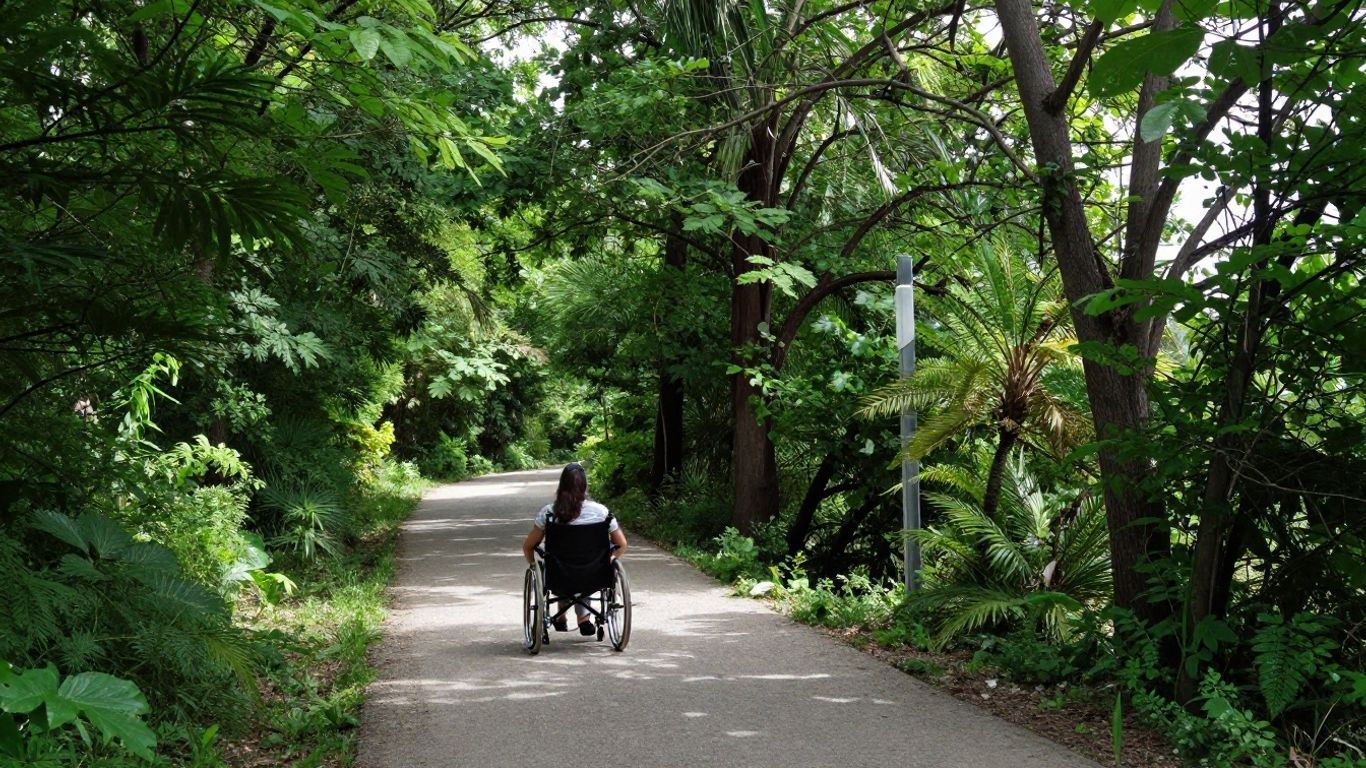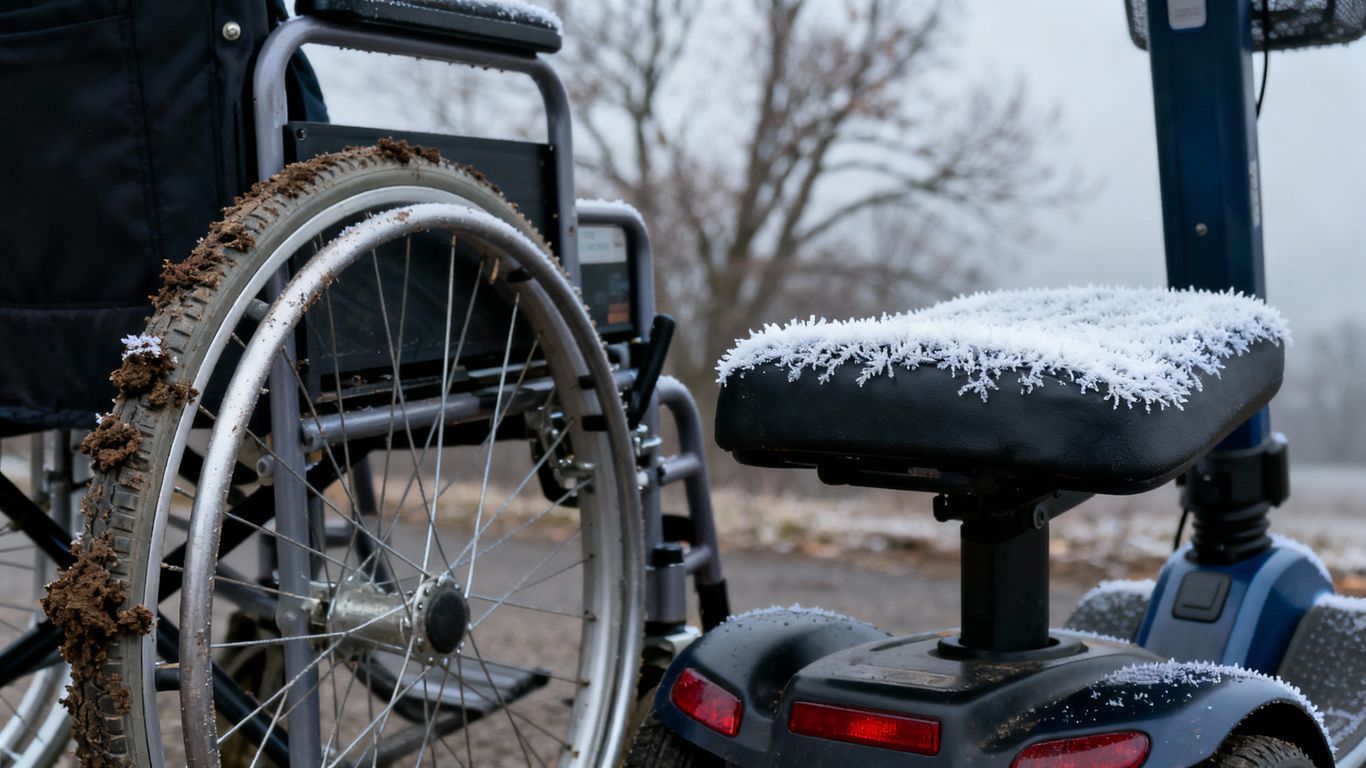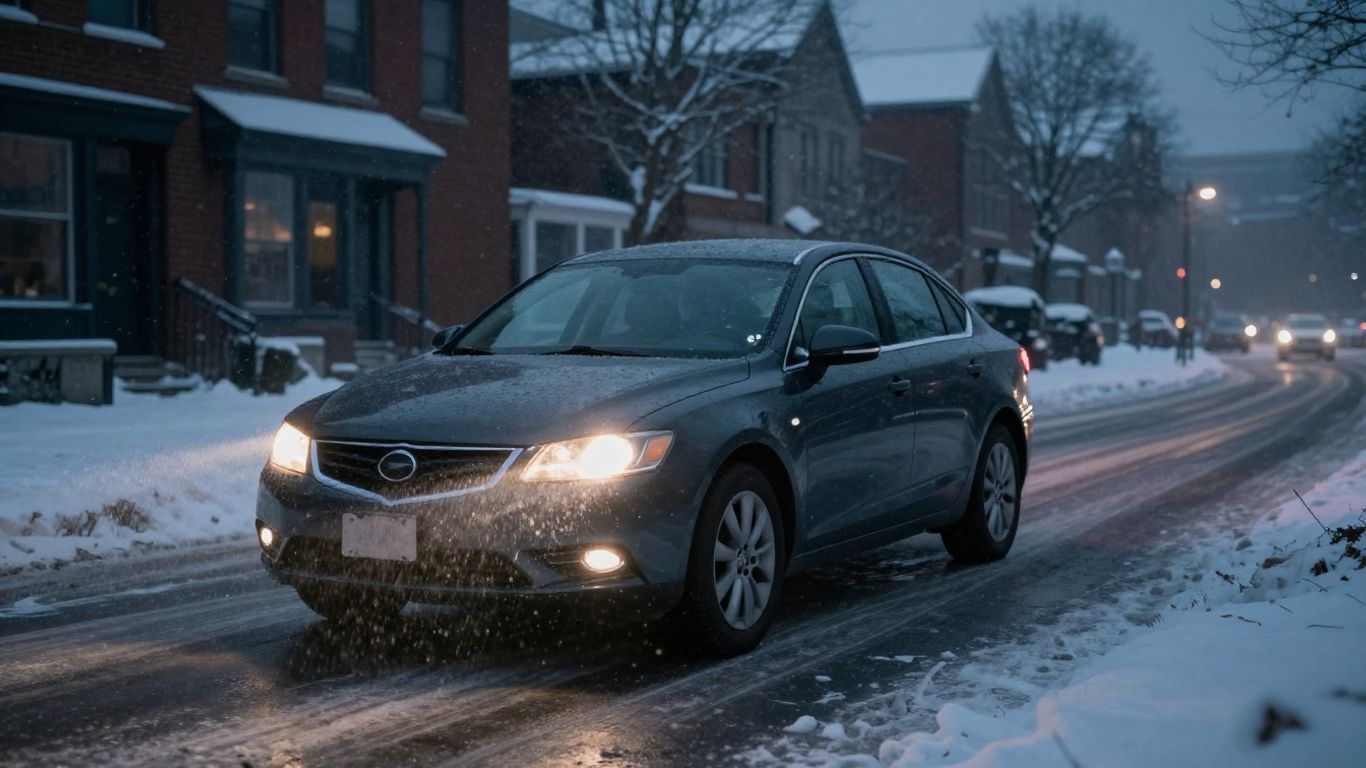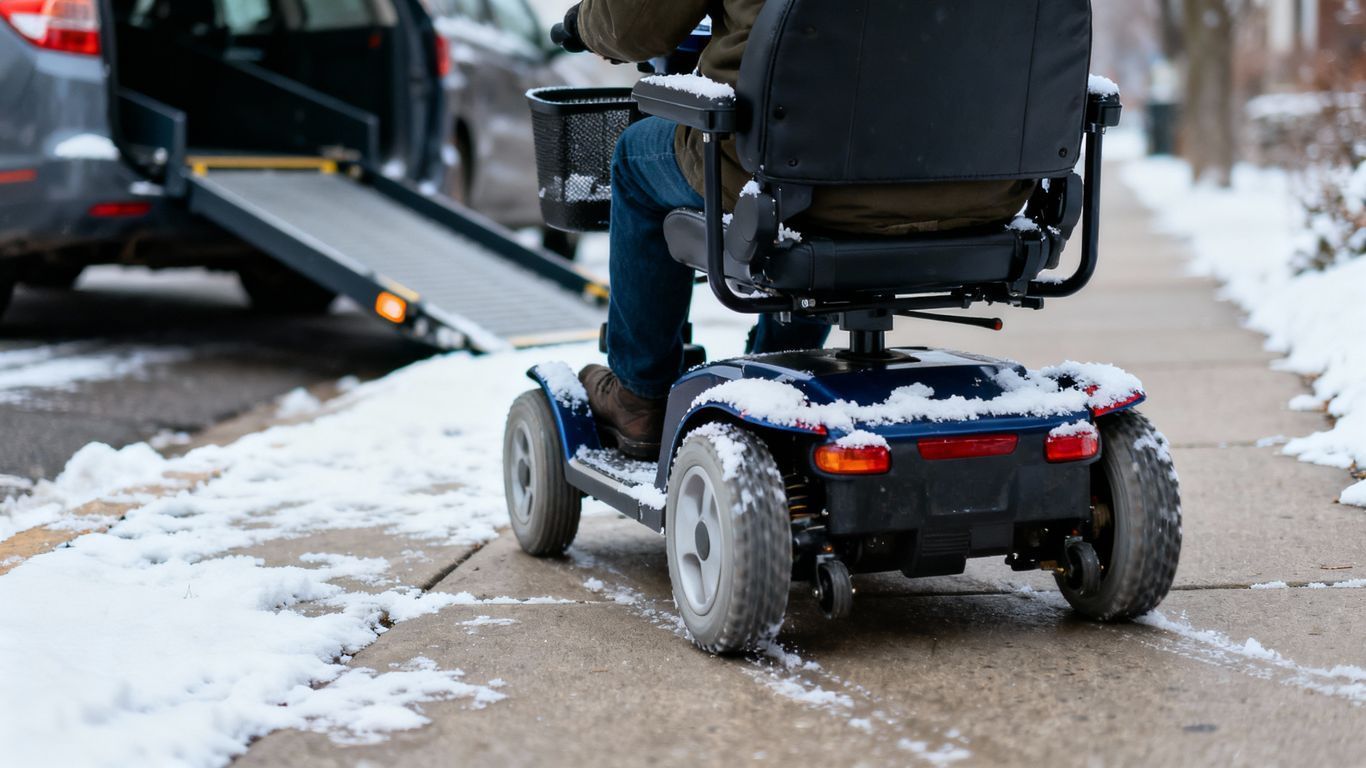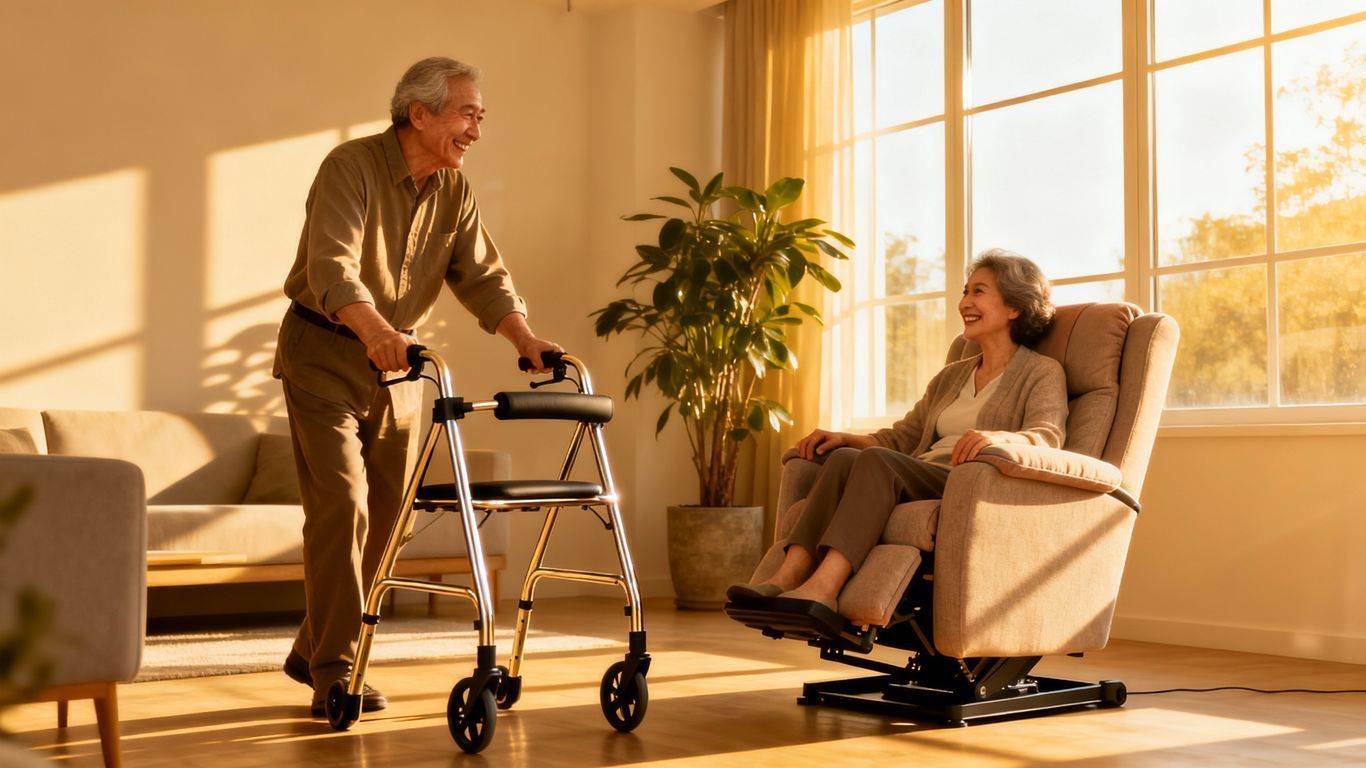How to Choose the Right Mobility Scooter or Power Wheelchair in North GA & Chattanooga
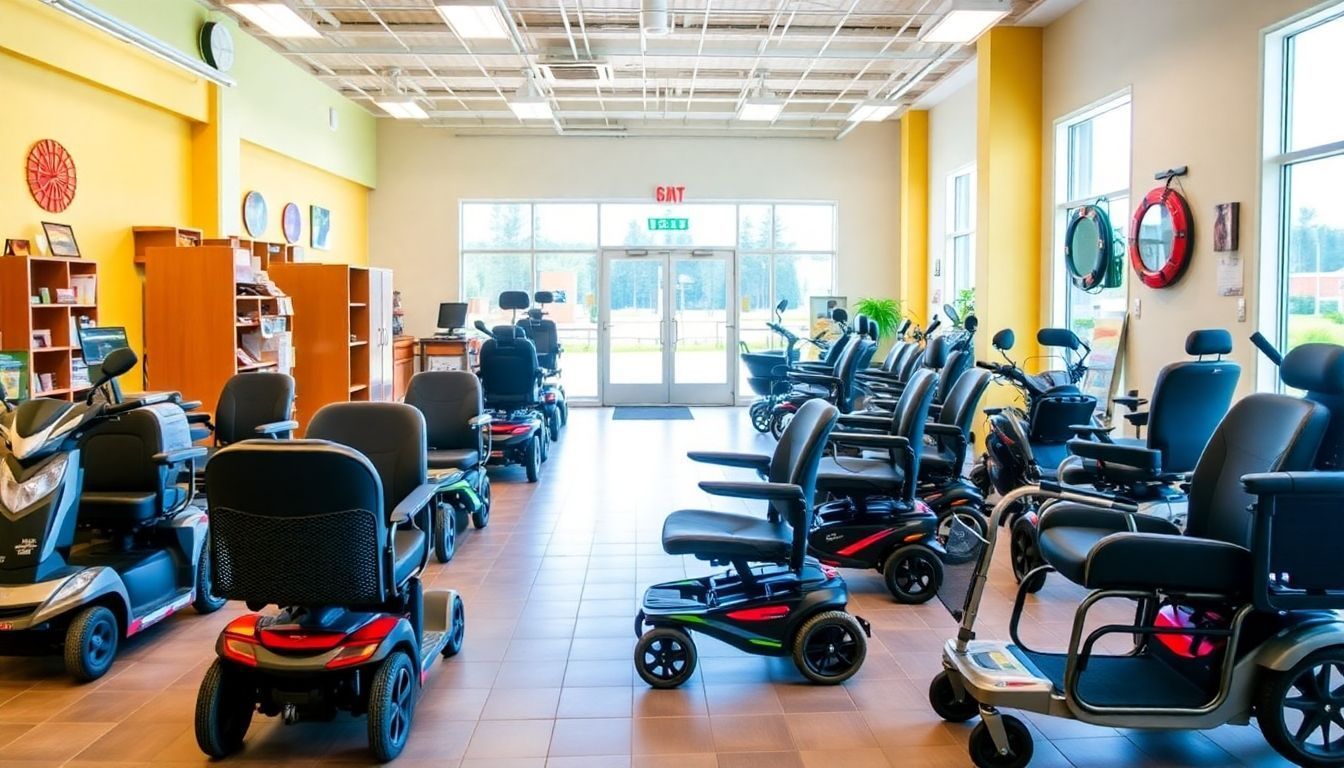
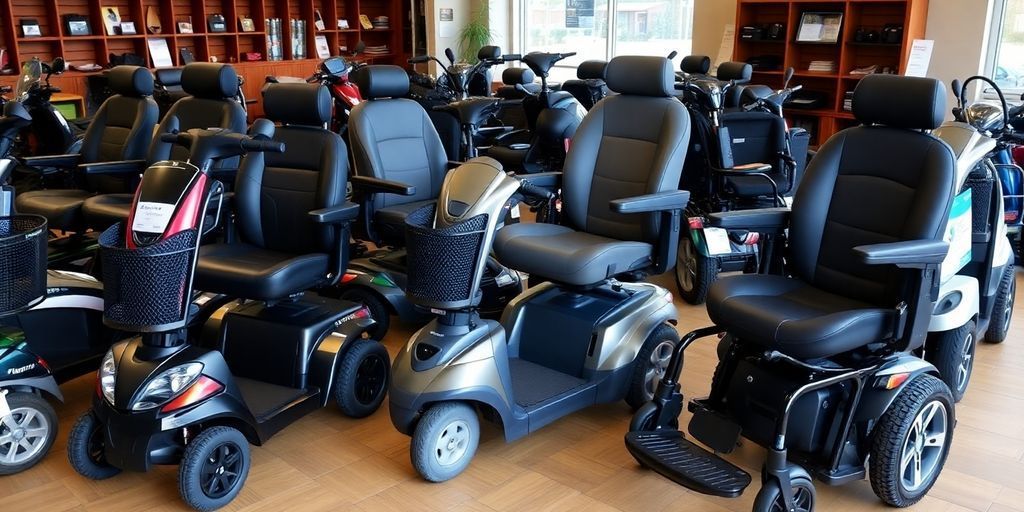
Choosing the right mobility scooter or power wheelchair can feel overwhelming, especially if you're unsure about what you really need. With so many options available in North Georgia and Chattanooga, it's important to understand the differences between mobility scooters and power wheelchairs, as well as what features will best suit your lifestyle. This guide breaks down everything you should consider when making your decision, so you can find a device that fits your needs and budget.
Key Takeaways
- Mobility scooters are generally more suited for outdoor use, while power wheelchairs excel indoors.
- Assess your daily activities and physical limitations to determine which device is best for you.
- Consider speed, weight capacity, and maneuverability when comparing electric wheelchairs and scooters.
- Look for features like battery life, comfort, and safety options to ensure a good fit.
- Explore local dealers and rental options in North GA and Chattanooga for hands-on experience.
Understanding Mobility Scooters and Power Wheelchairs
Definition of Mobility Scooters
Mobility scooters are like the gateway to getting around easier. They're designed for people who can walk a little but need help with longer distances or standing for too long. Think of them as a step up from a cane or walker.
- Usually have three or four wheels.
- Steering is done with a tiller.
- They're battery-powered, so you just charge them up.
Definition of Power Wheelchairs
Power wheelchairs, also called electric wheelchairs, are for folks who have more significant mobility challenges. They're built for people who can't walk at all or have very limited upper body strength. These are controlled differently than scooters.
- Controlled with a joystick, or sometimes even head movements.
- More customizable for individual needs.
- Often used indoors and outdoors.
Key Differences Between the Two
Okay, so what really sets these two apart? It's more than just looks. It's about what you need to get around. Scooters are generally simpler and better for people who have some mobility. Power wheelchairs are more robust and designed for those with more serious limitations. If you're considering a power wheelchair, it's important to understand Medicare prior authorization requirements.
The biggest difference boils down to the level of support and control each device offers. Scooters are for those who can transfer themselves and have some upper body strength. Power wheelchairs are for individuals who need more assistance and may have limited upper body function.
Assessing Your Mobility Needs
Before you even start looking at different models, it's super important to really think about what you need. It's easy to get caught up in fancy features, but the best mobility scooter or power wheelchair is the one that fits your life.
Evaluating Your Daily Activities
Think about a typical day. What do you actually do? Do you mostly stay inside, or are you out and about? Do you need to book a mobility scooter assessment to receive expert advice? This will help you figure out what kind of device will work best. Consider these points:
- Do you need to navigate narrow hallways in your home?
- Do you go grocery shopping?
- Do you visit friends or family regularly?
- Do you participate in any hobbies that require mobility?
Considering Your Physical Limitations
Be honest with yourself about your physical abilities and limitations. This isn't about dwelling on what you can't do, but about finding a device that supports you safely and comfortably. Can you easily transfer from a chair to a scooter seat? Do you have good upper body strength for steering? Do you need extra support for your back or neck? These are all important questions to ask.
Identifying Your Travel Requirements
How far do you typically travel? Do you need to transport your scooter or wheelchair in a car? Will you be using it on sidewalks, grass, or uneven terrain? The answers to these questions will help you determine the necessary range, portability, and terrain capabilities of your mobility device.
It's a good idea to keep a journal for a week or two, noting where you go, how long you spend there, and any difficulties you encounter. This can provide valuable insights into your mobility needs and help you make an informed decision.
Electric Wheelchair Vs Scooter Comparison
Speed and Range Considerations
Okay, so you're trying to figure out if an electric wheelchair or a scooter is better for you. One of the first things to think about is how fast you need to go and how far you need to travel. Scooters often have a slightly higher top speed than power wheelchairs, but it really depends on the model. Range is also super important.
- Consider your typical daily trips.
- Think about the distance to the grocery store.
- Factor in any recreational outings you might want to take.
Make sure to check the manufacturer's specs for both speed and range, and remember that these numbers can change based on things like the user's weight and the terrain.
Weight Capacity and Stability
Weight capacity is a big deal. You need to make sure whatever you choose can safely support your weight plus anything you might be carrying. Stability is also key, especially if you're dealing with uneven surfaces or inclines. Power wheelchairs tend to have a lower center of gravity, which can make them more stable than some scooters. But again, it varies.
- Check the maximum weight limit.
- Consider the base width for stability.
- Read reviews about performance on different terrains.
Maneuverability and Indoor Use
Think about where you'll be using your mobility device the most. If you're going to be spending a lot of time indoors, maneuverability is crucial. Power wheelchairs, especially those with mid-wheel drive, can turn in a tighter radius than most scooters. This makes them easier to navigate in hallways and smaller spaces. Scooters, on the other hand, can be a bit bulkier and harder to get around tight corners. If you need to understand power wheelchairs and scooters better, consider their turning radius.
- Measure doorways and hallways in your home.
- Consider the turning radius of each device.
- Think about how easy it is to control in tight spaces.
Features to Look For
When you're shopping for a mobility scooter or power wheelchair, it's easy to get lost in all the options. Let's break down some key features to consider so you can find the perfect fit for your needs.
Battery Life and Charging Options
Battery life is super important. You don't want to be stranded halfway through your errands! Think about how far you typically travel in a day and choose a device with enough range to cover it.
- Consider the type of battery. Some offer longer lifespans or faster charging times. Lithium-ion batteries are often lighter and more efficient than traditional lead-acid batteries.
- Check the charging time. How long will it take to fully recharge the battery? Is it something you can easily do overnight?
- Look for models with a clear battery indicator. This helps you keep track of your power levels and avoid unexpected shutdowns.
Comfort and Adjustability
Comfort is key, especially if you plan to use your scooter or wheelchair for extended periods.
- Seat comfort is paramount. Look for options with good padding and support. Some models offer adjustable seat heights and angles.
- Consider armrest adjustability. Can you adjust the height and width of the armrests to suit your body? This can make a big difference in your overall comfort.
- Footrests should also be adjustable. Make sure they provide adequate support and can be positioned comfortably for your legs.
Don't underestimate the importance of a comfortable ride. A well-designed seat and adjustable features can prevent fatigue and discomfort, allowing you to enjoy your mobility device to the fullest. Think about the weight and foldability of the scooter if you plan to travel.
Safety Features and Accessories
Safety should always be a top priority. Make sure your mobility device has the necessary safety features to protect you.
- Lights and reflectors are essential for visibility, especially if you plan to use your scooter or wheelchair at night or in low-light conditions.
- Consider models with anti-tip wheels. These provide extra stability and prevent the device from tipping over on uneven surfaces.
- Look for safety features like a horn or audible signal. This allows you to alert others to your presence and avoid collisions.
Budgeting for Your Mobility Device
Understanding Price Ranges
Okay, so you're looking at getting a mobility scooter or power wheelchair. The first thing that hits you is the price. It's all over the place! You'll see basic models starting at a few hundred dollars, but high-end ones can easily run into the thousands. What gives? Well, it's all about features, battery life, build quality, and brand. A bare-bones scooter might be fine for short trips around the house, but if you need something for all-day use and rougher terrain, you're going to pay more. Consider what you really need versus what's just nice to have. Don't forget to factor in potential add-ons like ramps or carriers for your vehicle.
Insurance and Financing Options
Here's where things get a little complicated. Will insurance help cover the cost? It depends. Medicare might cover a portion of a power wheelchair if your doctor prescribes it and deems it medically necessary. But, there's a lot of paperwork and hoops to jump through. Private insurance policies vary wildly, so you'll need to check your specific plan. Don't assume anything; call and ask. If insurance doesn't cover it, or only covers part of it, look into financing options. Some dealers offer payment plans, or you could explore personal loans. Just be mindful of interest rates and repayment terms.
Long-Term Cost Considerations
It's not just the initial purchase price you need to think about. There are ongoing costs too. Batteries will eventually need replacing, and that can be a significant expense. Regular maintenance, like tire replacements and tune-ups, will also add up over time. Consider these points:
- Battery replacement (every 1-3 years)
- Maintenance and repairs
- Electricity costs for charging
- Potential storage fees (if you don't have space at home)
It's easy to get caught up in the excitement of a new mobility device, but don't forget to factor in the long-term costs. A cheaper model might seem appealing upfront, but if it needs frequent repairs or has a short battery life, it could end up costing you more in the long run. Think about the total cost of ownership over the lifespan of the device.
Where to Buy in North GA and Chattanooga
Okay, so you've figured out what kind of mobility device you need. Now comes the big question: where do you actually buy one in North Georgia or Chattanooga? You've got a few options, and each has its own pros and cons. Let's break it down.
Local Mobility Equipment Dealers
Going to a local dealer can be a really good move. You get to see the scooters or power wheelchairs in person, try them out, and talk to someone who knows their stuff. It's way better than just looking at pictures online. Plus, they can help you with things like fitting and adjustments. Here's what to keep in mind:
- Expert Advice: The staff can answer all your questions and guide you to the right product.
- Test Drives: You can actually try out different models before committing.
- Local Support: If something goes wrong, you have a local place to go for repairs and service.
Online Retailers and Reviews
Shopping online can be super convenient, and sometimes you can find better deals. But, you don't get that hands-on experience. Reading reviews is super important. Look for patterns – are a lot of people saying the same thing about a particular model? That's a clue. Also, check the retailer's return policy before you buy. Here are some things to consider:
- Wider Selection: Online retailers often have a larger inventory than local stores.
- Price Comparison: It's easier to compare prices from different sellers.
- Customer Reviews: You can get insights from other users' experiences.
Rental Options for Testing
Not sure if a scooter or power wheelchair is right for you long-term? Or maybe you just need one temporarily? Renting can be a great way to test the waters. Some places offer rentals by the day, week, or month. This lets you see how a device fits into your daily life without a huge commitment. It's also a good option if you're recovering from surgery or have a temporary mobility issue. Look for places that offer a variety of folding models to try out.
Renting before buying is a smart move. It allows you to experience the device in your own environment, ensuring it meets your specific needs and lifestyle. This trial period can prevent costly mistakes and ensure you're completely satisfied with your final purchase.
Maintenance and Care Tips
Regular Maintenance Practices
Keeping your mobility scooter or power wheelchair in good shape doesn't have to be a huge chore. Think of it like taking care of a car – a little bit of regular attention can prevent bigger problems down the road. One of the most important things is to keep it clean. Wipe down the frame and seat regularly with a damp cloth to remove dirt and grime. Also:
- Check the tire pressure regularly. Underinflated tires can reduce battery life and make it harder to maneuver.
- Inspect the battery connections to make sure they're clean and tight. Loose connections can cause charging problems.
- Lubricate moving parts, like the tiller or joystick, with a silicone-based lubricant to keep them moving smoothly.
Troubleshooting Common Issues
Even with regular maintenance, you might run into some snags. Knowing how to troubleshoot common issues can save you time and money. For example, if your scooter isn't turning on, check the battery first. Is it fully charged? Are the connections secure? If that's not the problem, check the circuit breaker or fuse. Other things to look out for:
- Unresponsive controls: Make sure the scooter is in the correct mode (drive or neutral).
- Strange noises: Investigate any unusual sounds, like squeaks or grinding, as they could indicate a mechanical problem.
- Reduced battery life: This could be a sign of an aging battery that needs replacing.
When to Seek Professional Help
Sometimes, problems are beyond what you can handle on your own. It's important to know when to call in the pros. If you're not comfortable working on electrical components or dealing with complex mechanical issues, it's best to seek professional help. Also, if your scooter or wheelchair is still under warranty, attempting repairs yourself could void the warranty.
Don't wait until a small problem becomes a big one. Regular check-ups with a qualified technician can help identify potential issues early on and keep your mobility device running smoothly for years to come. Ignoring warning signs can lead to more costly repairs in the long run.
Taking care of your items is important to keep them in good shape. Regular cleaning and checking for any damage can help them last longer. Don’t forget to follow the specific care instructions for each item. For more tips and detailed guides, visit our website today!
Wrapping It Up
Choosing the right mobility scooter or power wheelchair can feel like a lot, but it doesn’t have to be. Just remember to think about your needs, your lifestyle, and where you’ll be using it. Take your time to test out different models and don’t hesitate to ask questions. It’s all about finding something that fits you and makes getting around easier. Whether you’re cruising around North Georgia or heading into Chattanooga, the right ride can make a big difference. So go ahead, do your homework, and pick the one that feels right for you.
Frequently Asked Questions
What is a mobility scooter?
A mobility scooter is a small vehicle designed for people who have trouble walking. It helps them move around easily.
How is a power wheelchair different from a mobility scooter?
A power wheelchair is more advanced and often offers better support for people with serious mobility issues. It usually has more features than a scooter.
What should I think about when choosing a mobility device?
You should consider how you will use it daily, your physical abilities, and the places you want to go.
Are there different types of mobility scooters?
Yes, there are many types of scooters, including ones for indoor use and others designed for outdoor travel.
How much do mobility devices cost?
Prices can vary widely. It's important to check your budget and explore insurance or financing options.
Where can I buy a mobility scooter or power wheelchair?
You can find them at local stores in North GA and Chattanooga, online retailers, or you can even rent one to try it out.
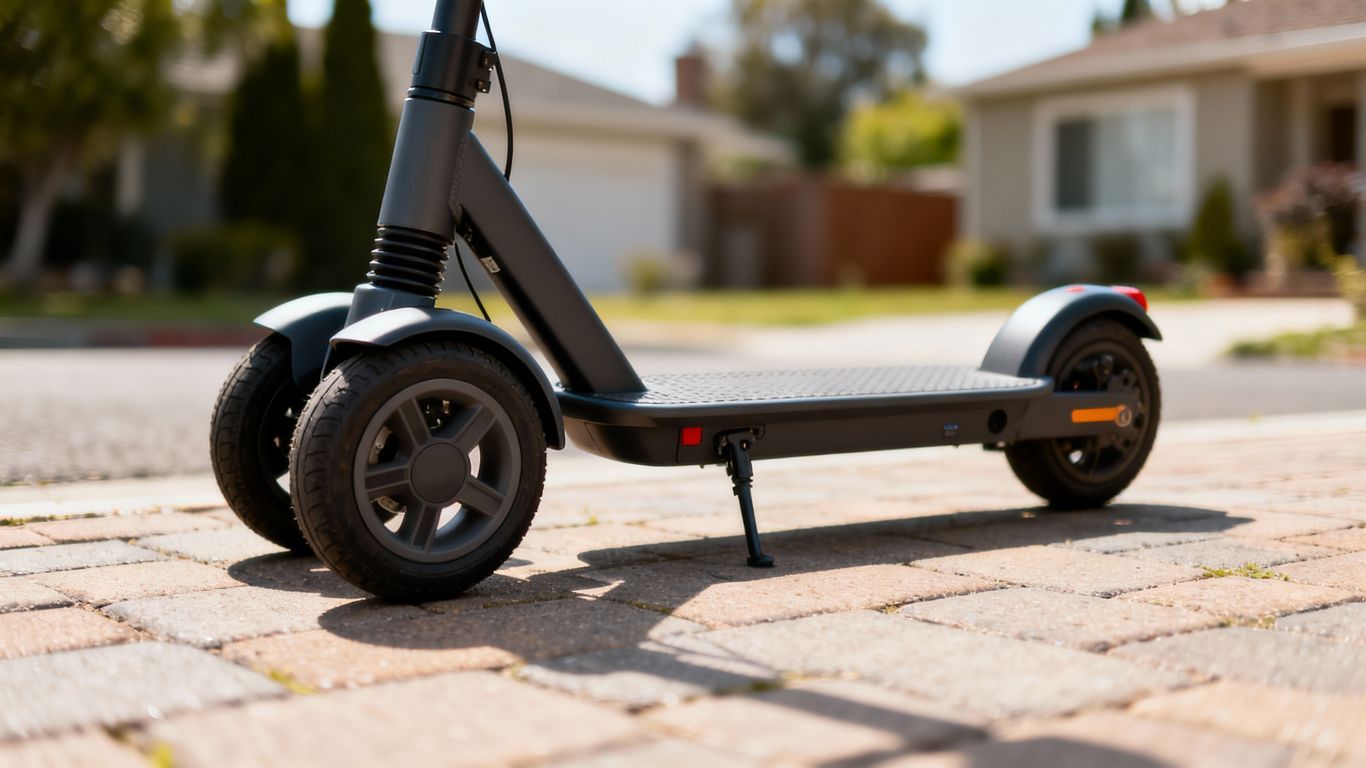
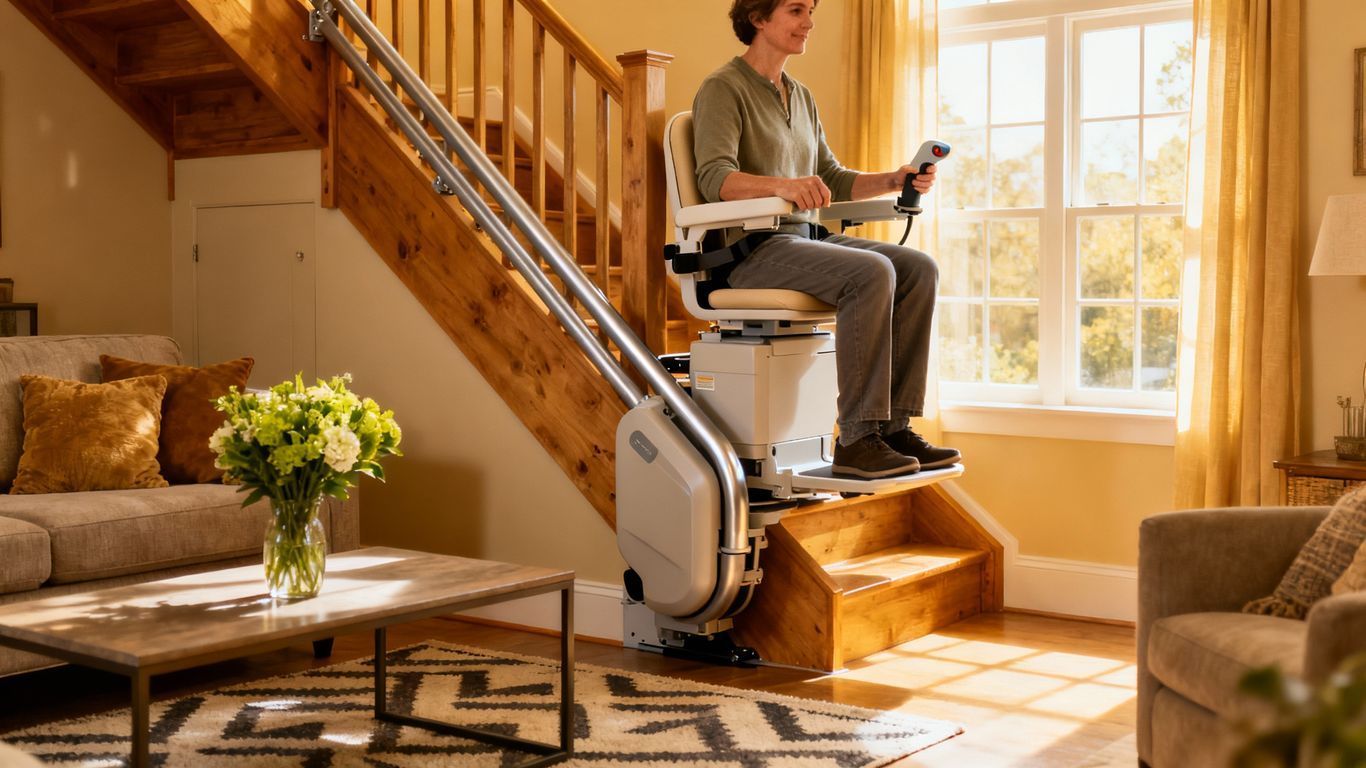
Why February Is the Perfect Time for Stair Lift & Home Accessibility Upgrades in Calhoun & LaFayette
